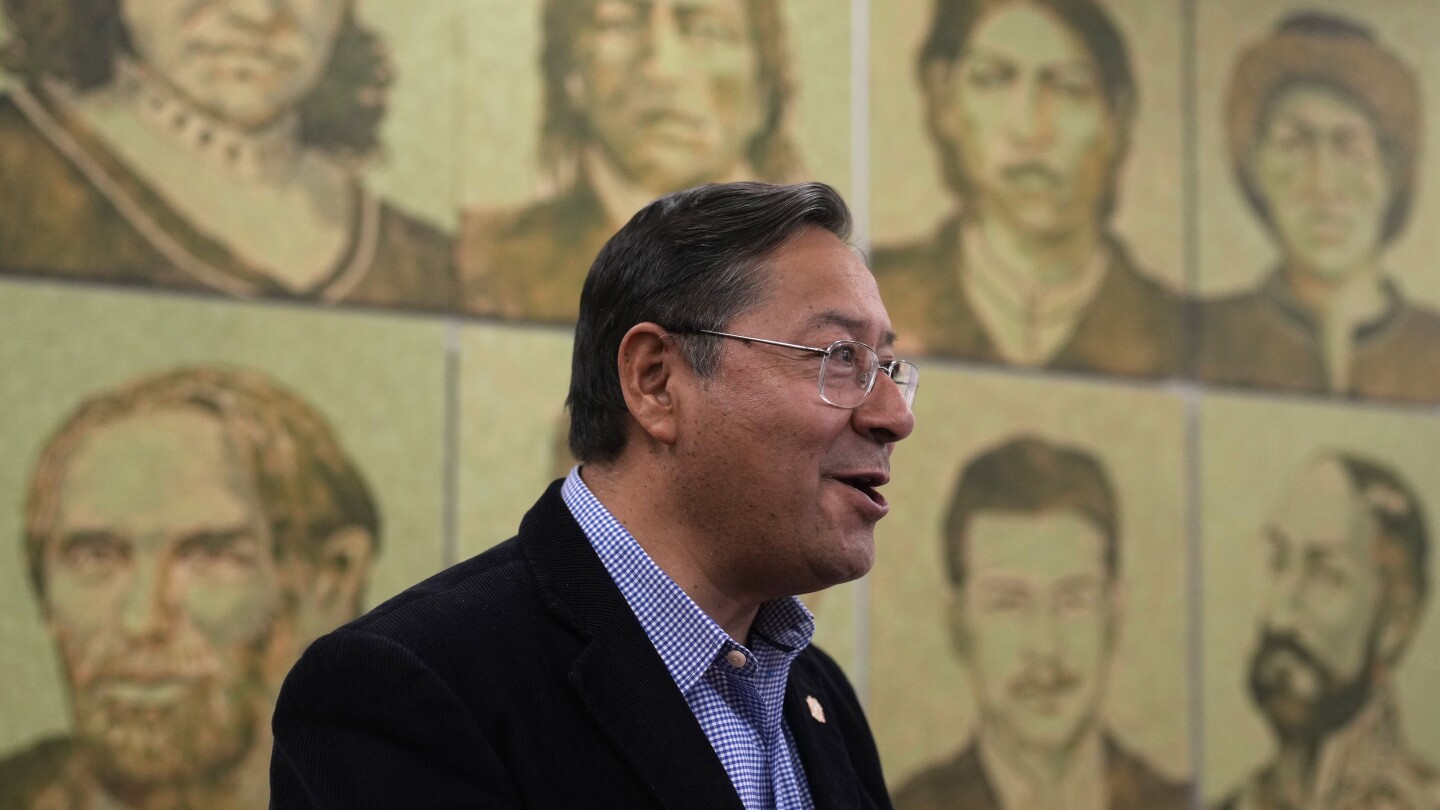LA PAZ, Bolivia (AP) — Former Bolivian President Evo Morales on Sunday accused his political ally-turned-rival President Luis Arce of deceiving the Bolivian people by staging a “self-coup” last week to earn political points among the electorate, marking a sharp downturn in an already fraught relationship.
Morales was initially among the country’s most powerful voices to say that approximately 200 members of the military who marched on Bolivia’s government palace alongside armored vehicles on Wednesday had attempted a “coup d’état.”
“We are convinced that democracy is the only way to resolve any difference and that institutions and the rule of law must be respected,” Morales wrote in a post on the social media platform X on the day of the military action. “We reiterate the call for all those involved in this riot to be arrested and tried.”
But on Sunday, Morales joined others who believe Arce himself orchestrated a “self coup” to win the sympathy of Bolivians at a time when his popularity is extremely low.
Arce “disrespected the truth, deceived us, lied, not only to the Bolivian people but to the whole world,” Morales said in a local broadcast program on Sunday.
Morales is throwing his support behind an accusation made by former Gen. Juan José Zuñiga, who allegedly led the coup attempt. Morales said Zuñiga informed colleagues and family of his plan before carrying it out, and that while in custody he told authorities that Arce had “betrayed” him.
“The president told me: ‘The situation is very screwed up, very critical. It is necessary to prepare something to raise my popularity’,” Zúñiga quoted the Bolivian leader as saying.
That theory was quickly adopted by Arce’s political enemies, who dubbed it a “self-coup.”
“At some point the truth will be known,” a handcuffed Gen. Juan José Zúñiga told reporters while being transferred to prison Saturday.
Shortly after the comments, Government Minister Eduardo del Castillo responded, in a slight aimed at Morales, saying “according to Evo, if there aren’t deaths, there is no coup d’état.”
Morales still wields a great deal of power in Bolivia, especially among coca growers and unions, while Arce has faced simmering discontent as the country reels from an economic crisis.
Morales, once Arce’s friend, resigned as president in 2019 amid unrest after he ran for an unconstitutional third term and fled into exile, an incident he insists was a coup. He threw his support behind Arce in the country’s 2020 election as candidate for his Movement for Socialism, known by its Spanish acronym MAS.
But their relationship soured when the leader returned from exile and Morales later announced he planned to run against Arce to be MAS’s candidate in the upcoming 2025 elections. Their fights have grown increasingly bitter as Morales has blocked much of Arce’s legislative agenda in Congress.
“We’ve been politically attacked,” Arce told The Associated Press in an interview Friday. But “we haven’t attacked” back.
The feud has angered many Bolivians and Morales’ Sunday comments were not likely to help.
Morales said in the local radio program “Kausachun Coca” that he felt the incident damaged the image of Bolivia and its military. He also apologized for expressing solidarity with Arce.

